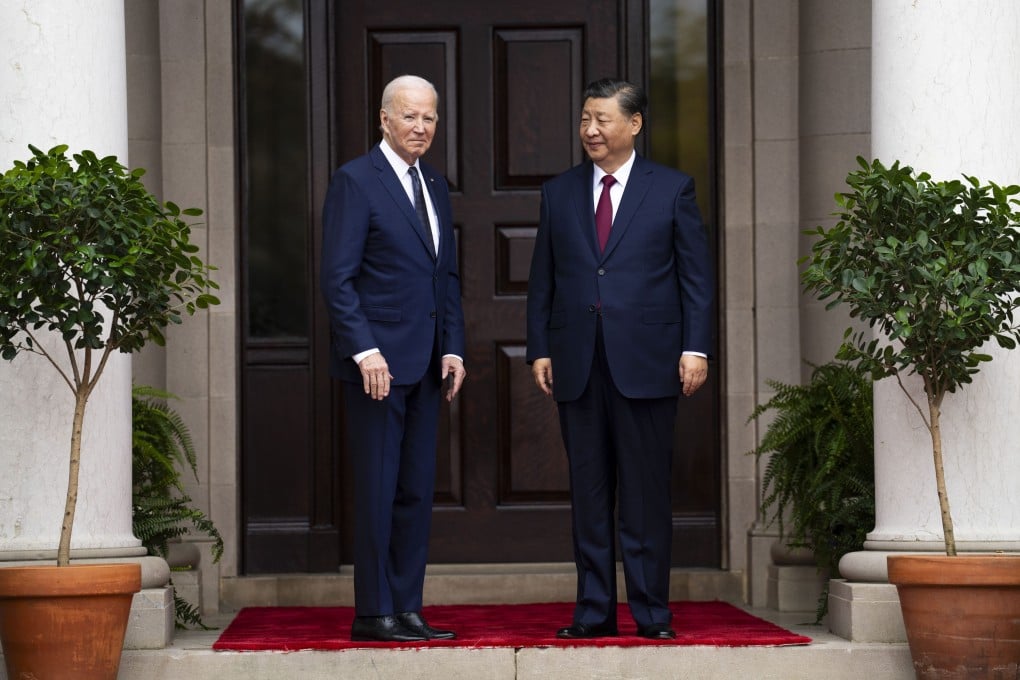Taiwan ‘most dangerous’ issue in China-US relations, Xi tells Biden in meeting
- The Chinese leader indicated Beijing is not preparing for an invasion of the island, a US official said after the meeting in California
- The two presidents held their first face-to-face encounter in a year on Wednesday, holding candid talks on range of issues

Xi was trying to indicate that China is not preparing for a massive attack on Taiwan, but that does not change the US approach, the official said.
“President Xi … underscored that this was the biggest, most potentially dangerous issue in US-China relations, laid out clearly that … their preference was for peaceful reunification but then moved immediately to conditions that the potential use of force could be utilised.”
According to Chinese state news agency Xinhua, Xi reiterated Beijing’s position to Biden, saying “China will eventually be reunified and inevitably be reunified”. He also described Taiwan as the most important and sensitive issue in the relationship.
Xi said he regarded Biden’s remarks on Taiwan during their meeting on the sidelines of the G20 summit in November 2022 as positive. At that time, Biden said that the US did not support Taiwanese independence, did not seek to change China’s political system and had a consistent Taiwan policy.